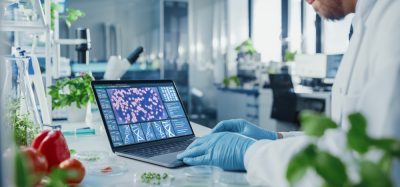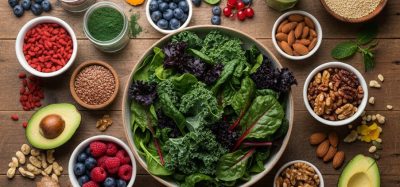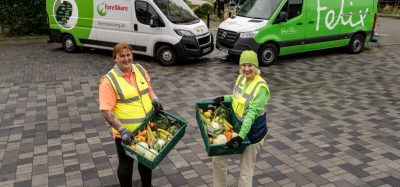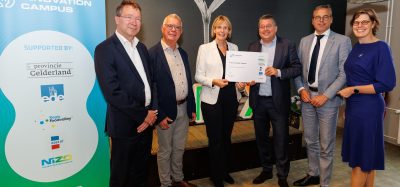Saveggy pilots edible plant-based coating to replace plastic in fresh produce
Posted: 6 October 2025 | Ian Westcott | No comments yet
Swedish start-up Saveggy has developed an edible, plant-based coating for cucumbers, offering a sustainable alternative to plastic packaging. Backed by EIT Food, the company is piloting the solution with ICA and Odlarna, with plans to expand across Europe.
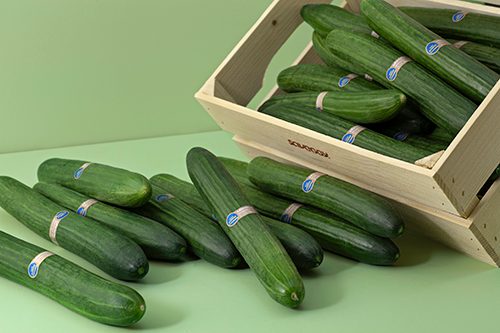

Saveggy’s edible plant-based coating applied to cucumbers, offering a sustainable alternative to plastic packaging. Credit: Saveggy
Swedish startup Saveggy has launched an additive-free, edible coating designed to extend the shelf life of fresh produce and reduce reliance on plastic packaging.
The coating, made from rapeseed oil and oat oil, provides a natural alternative to single-use plastic. According to Saveggy, scaling up the technology could play a role in tackling food waste while supporting the EU’s 2030 sustainability targets under the Packaging and Packaging Waste Regulation.
Cucumbers highlight the challenge: food waste on one side, plastic-wrapped shelves on the other. Our goal is to reduce food waste and plastic pollution together – with respect for nature, people and the resources that make our food possible.”
Founded in 2020 by Vahid Sohrabpour and Arash Fayyazi, Saveggy was established in response to mounting concerns over plastic pollution and food waste. Its technology has been developed with Lund University and partners across the value chain. Research from the company suggests that more than 3,000 tonnes of plastic are used annually to package cucumbers in the EU – a challenge Saveggy aims to address.
The company has now begun a one-month pilot with Swedish retailer ICA and vegetable grower Odlarna, applying its coating to cucumbers. With its first industrial machine in place at Odlarna’s facility, Saveggy is moving from research and development to commercial scale, with plans for broader launches across Sweden and Europe.
Supported by EIT Food and working in partnership with Aarhus University, the company is also developing applications for a wider range of fruit and vegetable products.
Commenting on the pilot, co-founder Arash Fayyazi said: “Cucumbers highlight the challenge: food waste on one side, plastic-wrapped shelves on the other. Our goal is to reduce food waste and plastic pollution together – with respect for nature, people and the resources that make our food possible.”
Related topics
Plant based, Product Development, Refrigeration and freezing, Sustainability



